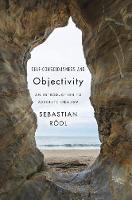Self-Consciousness and Objectivity: An Introduction to Absolute IdealismAuthor :
Hardback
Published : Friday 23 February 2018
You may also like ...

by
Hardback
23 Feb 2018
>>
€52.59
Extended stock – Dispatch 5-7 days
Description
Sebastian Rodl undermines a foundational dogma of contemporary philosophy: that knowledge, in order to be objective, must be knowledge of something that is as it is, independent of being known to be so. This profound work revives the thought that knowledge, precisely on account of being objective, is self-knowledge: knowledge knowing itself.
Self-Consciousness and Objectivity undermines a foundational dogma of contemporary philosophy: that knowledge, in order to be objective, must be knowledge of something that is as it is, independent of being known to be so. Sebastian Roedl revives the thought--as ancient as philosophy but largely forgotten today--that knowledge, precisely on account of being objective, is self-knowledge: knowledge knowing itself. Thus he intervenes in a discussion that runs through the work of Bernard Williams, Thomas Nagel, Adrian Moore, and others, who seek to comprehend the claim to objectivity we raise in making judgments. While these authors think that the quest for objectivity demands that we transcend the first person, Roedl argues that it is through the first-person thought contained in every judgment that our judgments possess the objectivity that defines knowledge. Self-Consciousness and Objectivity can be read as an introduction to absolute idealism, for it dismantles a stubborn obstacle to absolute idealism's reception: the notion that it is a species of idealism, which is understood to be the assertion that the world depends upon the mind. As Roedl brings out, absolute idealism is the resolute rejection of that idea. The implications of this work are profound. It undercuts a number of contemporary presumptions, such as that judgment is a propositional attitude, that inference is a mental process, and that there is an empirical science of the capacity for objective knowledge. All of these presumptions flow from the erroneous notion that the objectivity of knowledge stands opposed to its first-person character.
Reviews